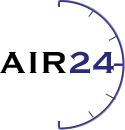[9] In 2004, the New York Court of Appeals upheld the constitutionality of the Kendra Act, a law on involuntary outpatient obligations. In its opinion, the court noted that since Kendra`s law only provides for outpatient engagement and no outpatient treatment, the legal safeguards last longer than due process. Other safeguards, in particular a declaration of incapacity for work, were necessary for the State to force medication. In re K.L., 1 N.Y.3d 362 (2004). The 4th Circuit Court of Appeals upheld the lower court`s decision. District courts are required to impose certain conditions on probation and may impose other measures under 18 U.S.C.A.§ 3583(d). The district courts “have a wide margin of manoeuvre” in the implementation of the special conditions of supervised release, and the Court of Appeal ruled after review that there was no misuse of power by the district court in this case. The court ruled that the protocol clearly reflected that Mr. Holman was a danger to himself and others when he stopped taking his medication. The Court of Appeal held that the involuntary drug requirement (1) was reasonably related to the need to protect the public, (2) provided Mr. Holman with effective and adequate medical care, and (3) was the least intrusive means of promoting these important government objectives.
Mr. Holman argued that the application of the requirements of section 3583(d) did not meet his interest of fundamental freedom to reject dangerous and personality-altering drugs. Holman`s erratic behaviour when he did not comply with the drugs prompted the Court of Appeal to rule that he posed a danger to himself and others and to uphold the District Court`s order. The other option considered by the court in Mr. Holman`s order was detention. However, this action plan continued to endanger him and the staff of the institution, as evidenced by his conduct while in custody. Taking him to the least restrictive environment for treatment is ordered by Sell, who supports supervised release instead of incarceration. Prior to the onset of symptoms, Mr. Holman was charged with drug and firearms offences, which led to his appearance. It could be argued that even if treated optimally, it could still be dangerous to others because of its legal history. Assisted outpatient treatment is only available to people who meet certain defined criteria.
Patients can only be admitted to the program by a court, which must first receive a petition from a defined group of people. The petition must state the reasons why the petitioner believes the patient meets the criteria and be accompanied by an affidavit from a physician who has examined or attempted to examine the patient. Court-ordered treatments have gained popularity as researchers now know that substance use disorders are treatable medical conditions. Although former offenders have been detained and have not received treatment, many jurisdictions are beginning to introduce treatment as a result of certain crimes. MHA affiliates and other lawyers should regularly review state laws and the practices of treatment facilities and courts, including criminal justice and probate systems, as well as private and public mental health systems, to minimize coercion in treating mental health where and when it occurs. Particular attention should be paid to the elimination of all discrimination against persons with mental illnesses who wish to be released from treatment, as well as to the legislation and promotion of the application of living wills in which the person directs his or her own treatment. The conditions of his supervised release did not require psychiatric treatment. Mr. Holman`s probation officer filed a motion regarding treatment, and in March 2005, the court ordered Mr. Holman to comply with his treatment plan, including all medications.
In particular, the order required the use of intramuscular injections of risperidone, as recommended by his prison psychiatrist. Court-ordered treatment of substance use disorders is often done as a result of drug-related offences. While a court-ordered rehabilitation is sometimes considered a “pass,” it has many requirements and consequences for non-compliance. The drug court includes testing and assessment, routine monitoring, including drug testing, and community supervision. Participants in drug courts are required to participate in the treatment of substance use disorders, although the specific requirements for treating a person may vary. Participants will be supervised by a multidisciplinary team of judges, treatment providers and law enforcement officers. The team meets regularly and discusses what is going well and what is not in the participant`s treatment plan. If the obligations are not fulfilled by the participant, there are consequences. For example, if a drug test has failed or a treatment appointment is missed, a short period of incarceration may be required. A patient may be placed on assisted outpatient treatment only if, after a hearing, the court determines that all of the following points have been met.
The patient must: A physician can verify whether or not a patient refuses to take medication under the court order, or refuses to perform a blood test, urinalysis, or alcohol or drug test under the court order, whether the patient needs an examination to determine if he or she meets the standard of hospital care placement. If, after hearing all relevant evidence, the court finds that the patient does not meet the criteria for assisted outpatient treatment, the court will reject the application. The most basic form of court-ordered treatment is educational programming. Drug education programs are often favored for their ease of accessibility and cost-effectiveness. An education program for drug offenders is often the first type of court-ordered treatment for first offences. It is also widely used in prisons and the prison system. However, educational programs alone are unlikely to be effective for the majority of participants. This type of intervention works best in the early stages of substance use. The court weighed the power of Section 3583 against existing jurisprudence, in particular Sell v. the United States. The sale presupposes that an involuntary drug order corresponds to a compelling interest of the State, whereas section 3853 requires only a reasonable relationship with one of the many objectives of conviction. In addition, the law requires that the condition of supervised release not be more restrictive than reasonably necessary, while Sell requires that the least intrusive officers be used.
Finally, the Court held that the particular condition of involuntary drugs was consistent with the requirements of the U.S. Supreme Court in Harper and Sell. Assisted ambulatory care (AOT) laws should allow families and others to ask the court to place someone for assisted outpatient treatment. But it is easier and cheaper if the mental health care system and not the relatives file the petition. However, mental health systems are notoriously reluctant to file petitions, so you have to be persistent. Group counselling is another common prescribed treatment. Some groups may consist exclusively of court-appointed participants, while others may include volunteer participants. Group counselling often aims to connect people with community resources such as 12-step scholarships and improve their relapse prevention skills. Court-ordered drug treatment programs may be chosen by the court system.
In many cases, recommendations are made to offenders. In other cases, an individual may choose their own treatment provider as long as the provider meets the requirements of their court order. Since court-ordered treatment is an opportunity, it`s a good idea to make the most of the situation and find a program that`s most likely to help you. Finding out from institutions to learn more about their philosophy and treatment programs can help you refine your decision. The drug court is a program of the justice system that aims to reduce future criminal activity while reducing the burden and cost of incarcerating non-violent people. The drug court is an opportunity to receive treatment and education that requires complete abstinence from substances, including alcohol. (9.2.7) States should adopt broader and more flexible standards that provide for involuntary obligation and/or court-ordered treatment when a person suffers from a mental illness: ultimately, it is taxpayers who bear the burden of court-ordered treatment services. However, in many cases, offenders pay at least in part for the services they receive. In situations where a halfway house is prescribed, residents almost always have to pay their own rent.
.

